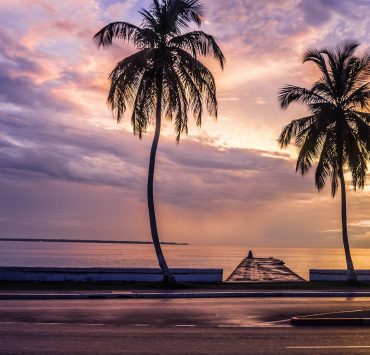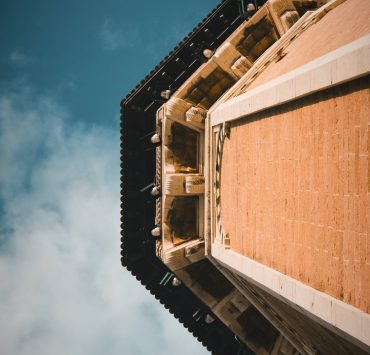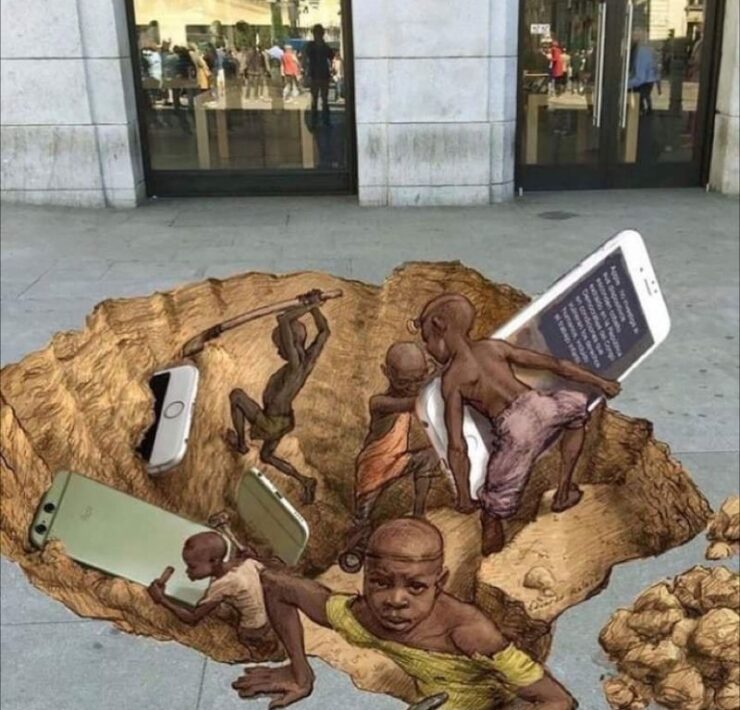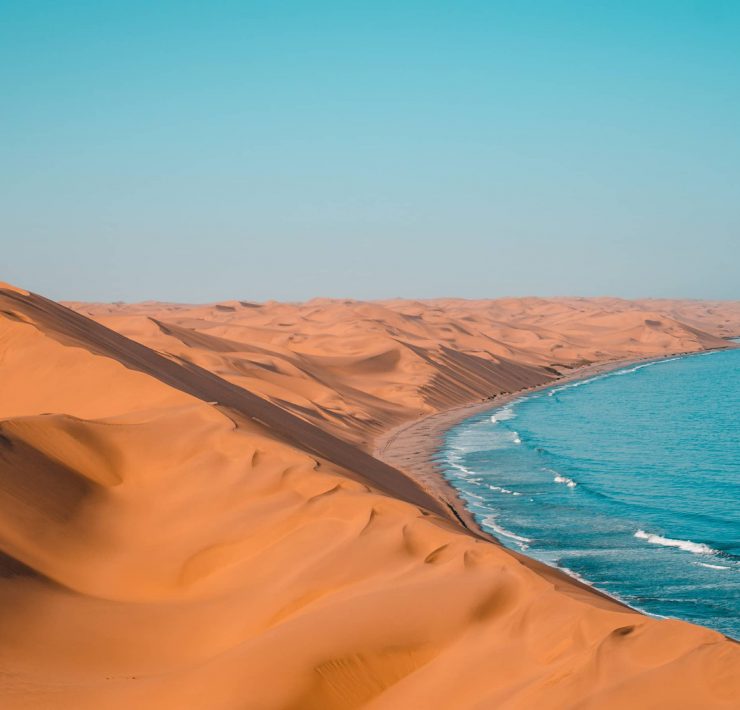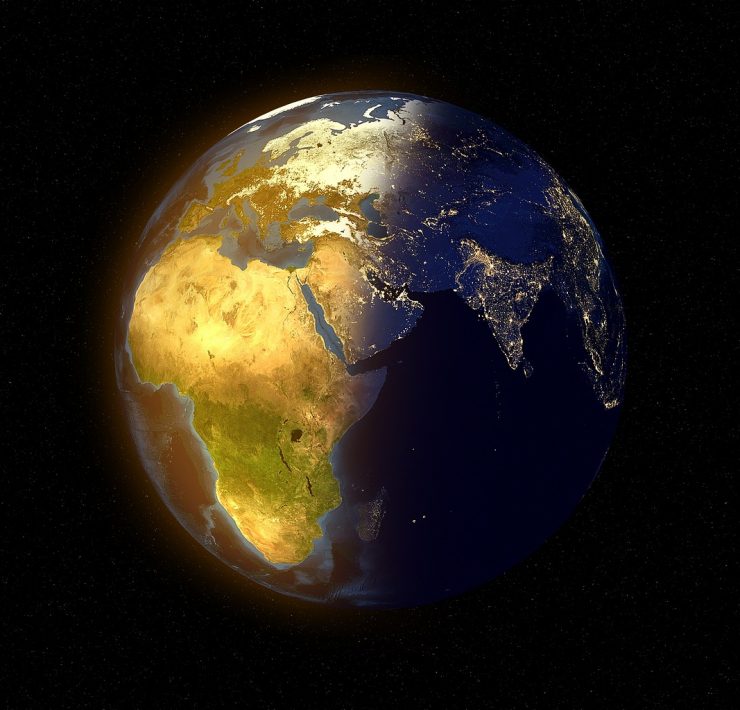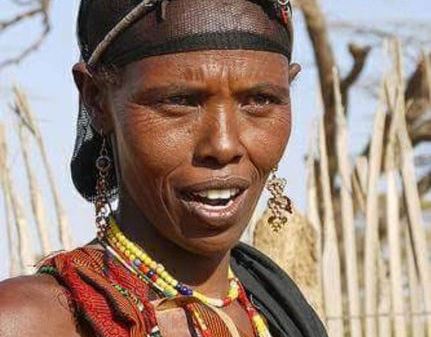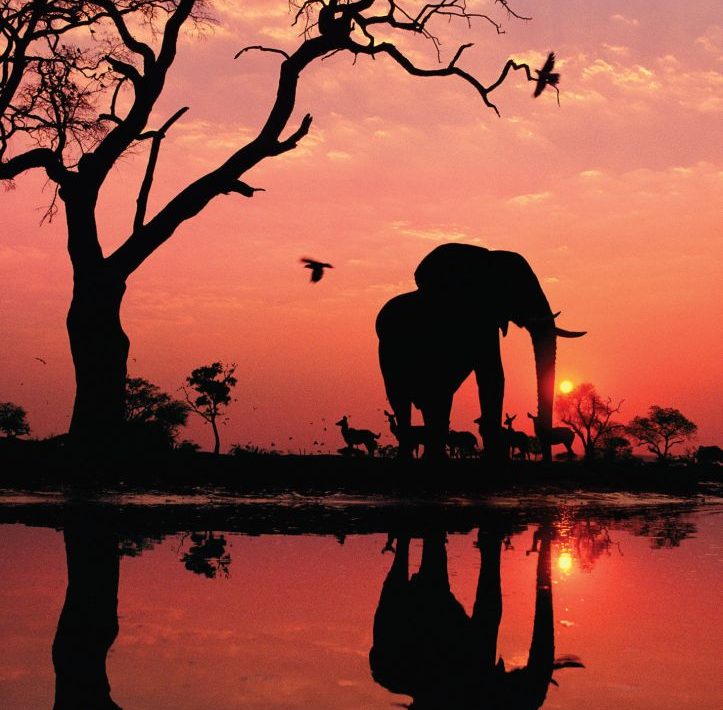Something Broke
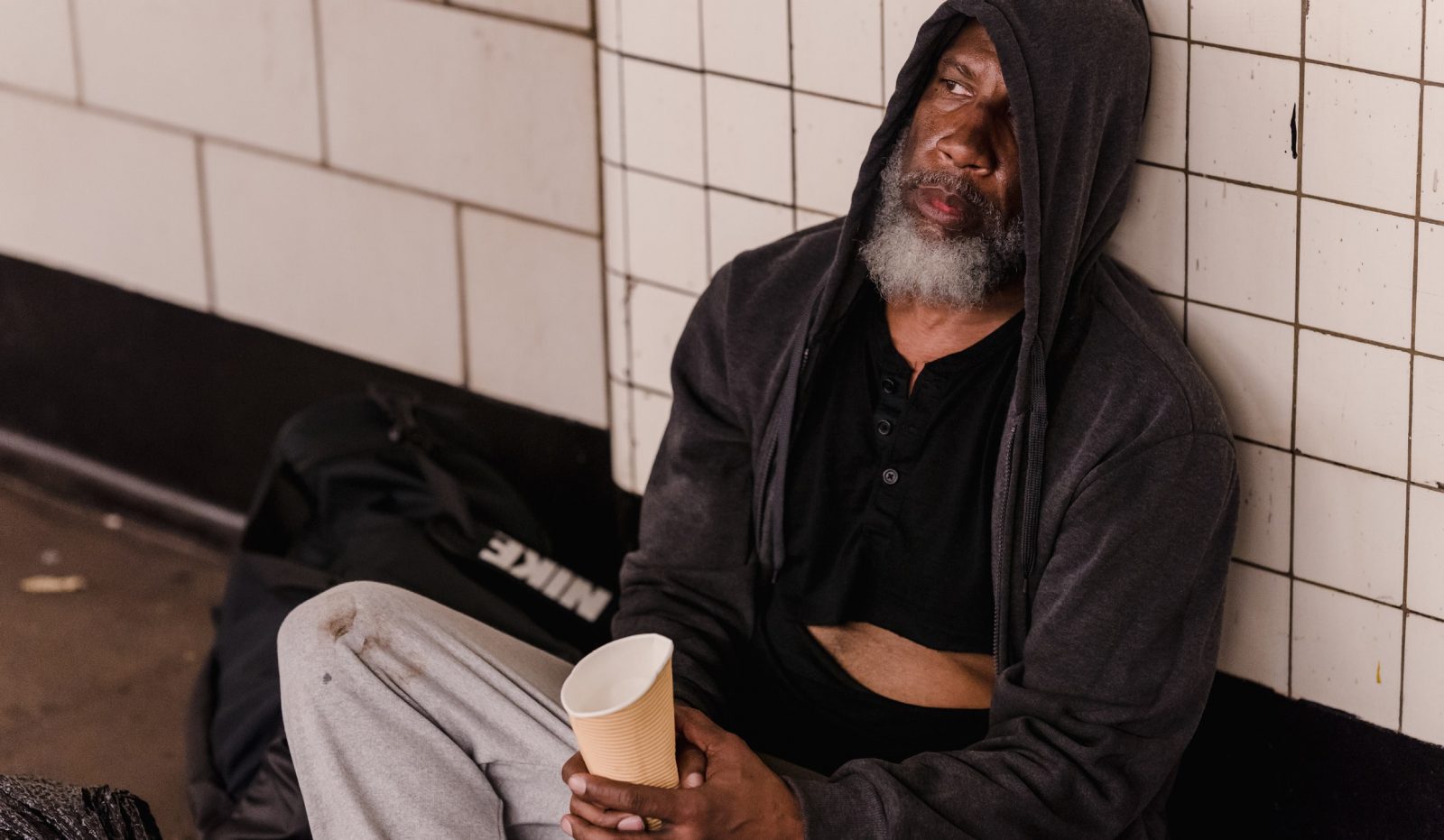
Samuel Phillips is a writer, graphic designer, photographer, songwriter, singer…
What happened to Afrikans?
Something broke. Yes you heard me. Something definitely broke in the deepest part of the mind of the average Afrikan. It is hard to put a face to, or point a finger at it, but the effect of this broken deep part of the Afrikan can be felt and seen everywhere you look. It is felt in the religious system, in the education sector, in business, family, government, in medicine and in all areas of global Afrikan life. And it makes me sick that, even with all the noise about how educated Afrikans are globally, and with all the huge achievements they make, you still see that broken attitude in many.
Some call it cognitive dissonance and maybe they are right. I will talk about this issue of cognitive dissonance in a bit, but let me ask a few rhetorical questions first, just to point you to where I am going with this article.
Have you ever wondered how it is possible for an Afrikan to undermine something good that is coming out of Afrika, simply because it does not carry an American or European label? Have you ever been on a comments page on social media where someone posted something that was supposed to create a meaningful discussion, and watched our Afrikan brothers and sisters spew words and statements that you can only call “childish”, even when they are supposed to be matured?
Have you ever wondered why it is easy for some Afrikans to relate with the poverty and deprivation narrative of Afrika but not accept that Afrika is actually beyond what is shown on the media? Here is what I mean, and I will explain it using my own experiences as a writer, photographer and video maker.
When I make videos for some of our Msingi Afrika TV projects, or when I design this magazine, or the other design work that I do, I use quite a lot of stock videos and images from websites that give these videos and images for free. Imagine this with me for a moment. Would you believe it if I told you that when we first began this magazine and video projects, it was very hard getting free stock images and videos? Now, it being hard was not simply because I could not find what I really wanted, but that it was hard for me to use some videos and images because, in my head, they looked too good to be from Afrika. Did you get that? Let me explain further.
Imagine me trying to make a video on Afrikan architecture, and I am looking for videos of buildings captured in Afrika but find it hard to use the beautiful videos of buildings in an Afrikan city that I found. Instead, my mind wants to use something that looks like painted huts in some rural homes in some villages in Afrika. It took me a while to disabuse myself from such foolishness. I needed to consciously tell myself what the true reality of Afrika really is. But this trend is definitely not isolated to me, my wife told me she also experienced the same challenge, and it is a much deeper issue that I have seen in a lot of media content. Take for instance when you watch Hollywood movies or music videos where the story is set in the Afrikan culture or way of life. You see in such movies, or music videos, Afrikans portrayed as those folks wearing animal skins, or with painted faces and stuff that you really do not see in the real life of the present day Afrikan person. Or you see them riding donkeys right in the midst of a supposed Afrikan city. And when they tell you they are doing a documentary on Nairobi, for instance, they only show you the slum called Kibra and not the fine places in Nairobi. And I am not just speaking of foreign content makers who may have their own agendas, but Afrikans themselves.
But why is it easy and ok for us Afrikans to do these things? Something broke.
Some time back, I was watching an interview that featured some young Afrikans. The presenter asked them what they think about Afrikan indigenous herbal medicine. You could see the horror on their faces. One guy in particular was so disgusted with the idea, he said he can never allow such thing inside his mouth. He prefers the modern drugs and pharmaceutical products. So, I was thinking, does this guy know that the tea and coffee he drinks on a date in Java, and even takes selfies with, are actually herbal medicines? I am pretty sure this guy would have no issue taking Chinese herbal medicine, just like many of our Afrikans are doing. They hate the Afrikan herbal medicine, but take selfies with Ginseng tea from China. Something broke.
I am stressing more on the issue of herbal medicine because it is one of those that is closest to home; but the issue of what broke in the mind of the Afrikan is definitely in all aspects of Afrikan life.
Cognitive dissonance
According to Wikipedia, in the field of psychology, cognitive dissonance is the perception of contradictory information. Relevant items of information include a person’s actions, feelings, ideas, beliefs, values, and things in the environment. Cognitive dissonance is typically experienced as psychological stress when persons participate in an action that goes against one or more of those things. According to this theory, when two actions or ideas are not psychologically consistent with each other, people do all in their power to change them until they become consistent. The discomfort is triggered by the person’s beliefs clashing with new information perceived, wherein the individual tries to find a way to resolve the contradiction to reduce their discomfort.
Basically, cognitive dissonance is about not wanting to take a new stand when new information is presented, because it causes discomfort to let go that which one is used to. But, if this is the case, how were Afrikans able to shift from the days of no internet and mobile phones, to the days of internet and mobile phones, without feeling stressed out in discomfort for what they had to let go of, in order to fit in into the new age of gadgets and stuffs? Could it be that the only time cognitive dissonance affects Afrikans is when they are dealing with things that are Africentric but are actually excited and accommodative to Eurocentric ideology? I think so. But why?
Sometime ago, my wife and I were at a lunch with Prof. PLO Lumumba, and he shared a very interesting story with everyone present. He spoke about how he visited Namibia with a young European friend. At the airport, the immigration officers gave him a hard time, asking demeaning questions about what he came to do in Namibia; but his European friend was not even asked any questions but was welcomed with all smiles. Now, if you are familiar with who the Pan-Afrikanist PLO Lumumba is, you will know that this man is almost more popular in Afrika than most Afrikan presidents. Now, let us even say he is a nobody or just some random Afrikan tourist going for vacation, should his treatment by fellow Afrikans at the border of an Afrikan country be that of shame and not brotherly love?
What broke?
I do not think it is just one thing that one can put their finger on, but I do think the issue of the loss of identity is one major problem we have to deal with. And this itself must be looked at from a deeper perspective, going back to when the partition of Afrika was done.
When the colonizers “broke” Afrika into bits and called them individual countries, could it be that it was not just a physical breaking that was done but something much deeper? Could it be that there was some form of witchcraft and sorcery involved in the breaking of the continent of Afrika, which also broke and distorted the spiritual reality and mindset of the Afrikan people? I absolutely think so. Take for instance, it is on record that the woman who named Nigeria called Flora Shaw, the girlfriend of Luggard who was the governor of the place now called Nigeria, was a Satanist. Imagine naming a country Nigeria, which means “dark area” by a supposed Satanist, and then wondering why, after more than a century, Nigeria still does not have stable basic electricity.
The issue of Christianity
Some Afrikans think that Christianity and the Bible was used as a form of mind bending tool to break the mind of the Afrikan person. It is tempting to want to agree with that claim, especially when you look at what is going on with the church system of today. But truth be told, Christianity did not begin with Europe, and the Europeans did not bring Christianity to Afrika. The opposite is actually what the truth is. Afrikans took Christianity to Europe and Christianity has been in Ethiopia and in the northern part of Afrika for millenia, while Europe was still in caves. As the late Dr Mfuniselwa J. Bhengu wrote in an article titled: UBUNTU LOCUS IN THE CHRISTIAN CHURCH IN AFRICA,
“during the entire antiquity, Africa, Asia, and the Middle East were more advanced in science, technology, philosophical thought, and literature, than Europe, particularly Western Europe… It was from these origins in Africa and the Middle East, that the new religion of “Christians” came into Europe. Christianity was brought into Europe by Africans and the Middle Easterners.”
It is possible that the “version of Christianity” that the Europeans brought to Afrika during the quest to colonize Afrika was faulty, in that they used the content of the Bible to create a less than good image of Afrikans. But we know better now, and should definitely be responsible to do better as Afrikans.
Take a look at Ethiopia
If there is a nation in Afrika whose people seem to have a different ideology and loyalty to their national identity and the Afrikan reality, it is the Ethiopians. Just maybe because they understood differently that Christianity, which many claim is the corrupter of Afrika did not begin with Europeans, but with them, so they are able to take a clear stand on imperialism with accurate response to any madness from the West or Europe.
Recently, we were to interview one of our Ethiopian brothers about the issues of the conflict between the Ethiopian government and the TPLF. He sent us a message apologizing that he would not be able to do the interview on the conflict, because it is discouraged by the central government for now. Especially with the biased media coverage and propaganda that the Western media has been pushing against Ethiopia.
I thought about that for a while and was really impressed that there are still Afrikans who are ready to give anything to defend their nation from foreign madness. But such loyalty to a national ideal can only happen in Ethiopia, where their history as warriors of good conscience and discipline match their present day reality of a people with a progressive national identity. They do not turn their backs on their nation, not for anything.
Recently, Dr Abiy Ahmed, the PM of Ethiopia said, “Ethiopia is an exciting country. Her future is greater than her past. Passing through difficulties is her age old skill. We will surely overcome this predicament. Ethiopia will surely prevail. This is the last hour where we will fight the last battle to save Ethiopia.”
“Our old enemies do not want an Ethiopia that wants to prosper through her own path. They have waged all sorts of wars not to see this happen. If Ethiopia stands up through the African path, if Ethiopia not only stands but if she succeeds, she will kneel to no one. They have brought all sorts of weapons against us to ruin this African path. Our internal and external enemies have conspired to build their strength out of Ethiopia’s weakness.” he said.
The Prime Minister of Ethiopia reminded citizens that this struggle is every Ethiopian’s struggle. He said the struggle is needed so that Ethiopia’s children will have a home, dignity and pride as they move around the world.
As PM Abiy Ahmed readied himself to lead the ENDF at the war front, he said “now is the time to lead our nation paying the necessary sacrifices. Starting tomorrow, I will be leading the ENDF at the frontline. If you want to go down in history as one of Ethiopia’s pride let us meet at the war front.”
Imagine such boldness of words and heart towards an Ethiopia that must be free from kneeling to foreign imperialists. Such boldness is the true heart and drive of the ancient Afrikans who controlled kingdoms and empires without the noise of those with pale skins. Imagine if all Afrikans both home and abroad would stand up with boldness and confidence and take a stand against foolishness, and the many compromises that are happening because of the money from the West, Europe and the East. Imagine if we all as Afrikans would be true to what it means to be AFRIKA, the Birthplace of life. What it means to be ALKEBULAN, the Mother of Humankind. It will be a new day.
What's Your Reaction?
Samuel Phillips is a writer, graphic designer, photographer, songwriter, singer and a lover of God. As an Afrikan content creator, he is passionate about creating a better image and positive narrative about Afrika and Afrikans. He is a true Afrikan who believes that the true potential of Afrika and Afrikans can manifest through God and accurate collaborations between Afrikans. Afrika is the land of kings, emperors, original wisdom, ancient civilizations, great men and women and not some road-side-aid-begging poor third world continent that the world finds joy in undermining.









